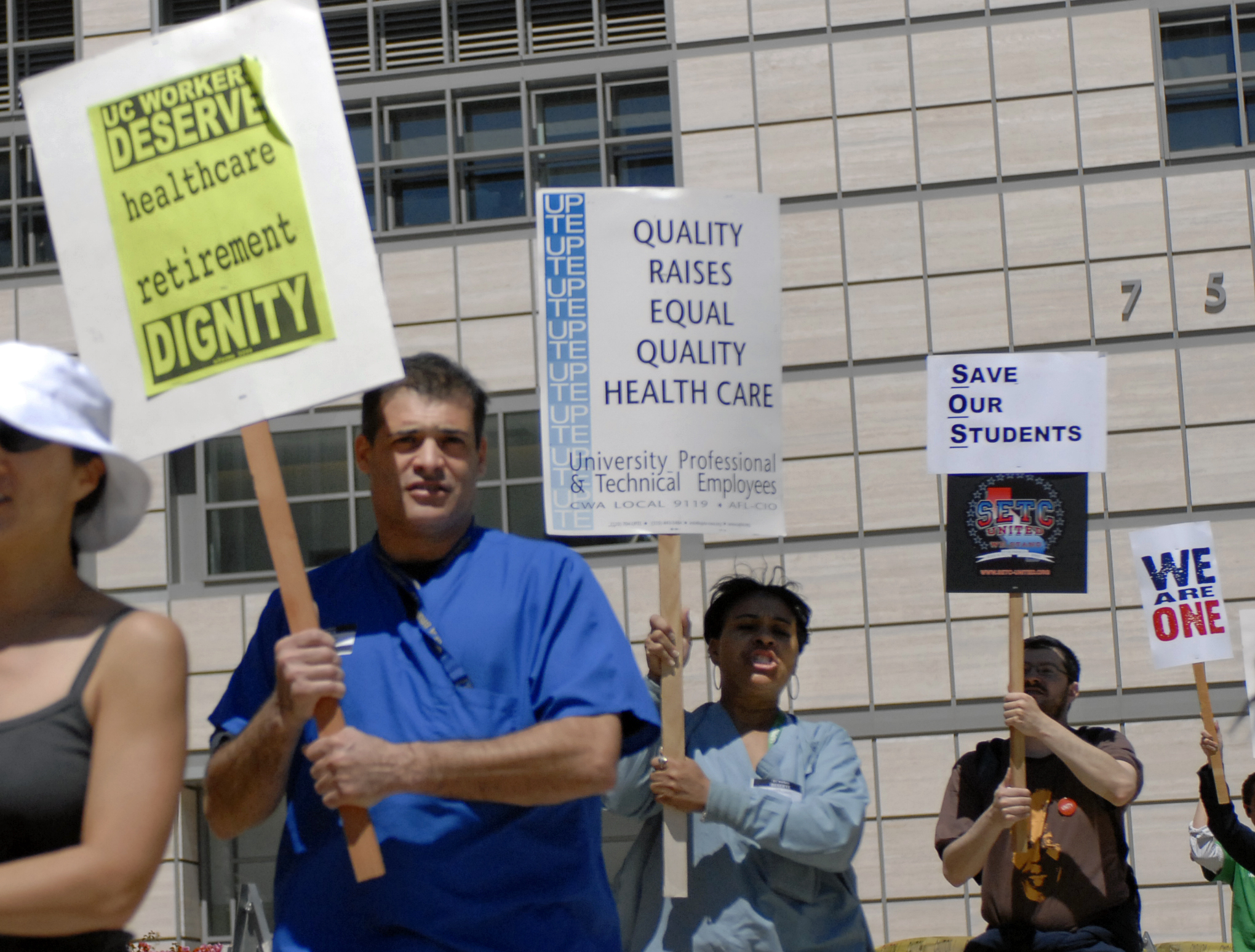On most mornings, Cherlyn Smith can be found in Covel dining hall, serving desserts and grilled items to students coming in before their 8 a.m. classes.
Smith works 12-hour shifts, preparing and serving food, from pizza to desserts to main courses.
Yet despite the long hours and possible wage-reduction, Smith said she enjoys her job, mostly for the benefits offered and the opportunity she gets to take care of students.
“It doesn’t take much time to do it, and a kid may be going through bad times; it makes you want to do the extra little thing to make their day,” she said.
Monday marked the first day of Workers’ Awareness and Appreciation Week, a series of events that recognize and celebrate the activities of workers on campus, who invest a great amount of time in students but face increasing difficulties as a result of the University of California’s budget crisis, said John Christian De Vera, Facilities Commissioner for the Undergraduate Students Association Council.
The week of events will include a concert, a film screening and multiple opportunities to write thank-you notes to workers on campus.
“We’re here to study and learn, and we need to make sure we’re at a university with an infrastructure for our academic affairs,” said Sheena Santamaria, director of Workers’ Awareness and Appreciation Week. “Workers maintain the campus for our academic pursuits ““ our campus wouldn’t be able to function without them.”
Although most workers spend their time “behind the scenes,” their jobs are crucial to students’ daily activities. Through maintaining classrooms and preparing meals, campus workers are essential to the welfare of the student body, De Vera said.
Yet these workers find their own welfare jeopardized, as they face cuts to their pay and reduction in benefits, said Rosa Cavalho, lead organizer at American Federation of State, County, and Municipal Employees Local 3299, a union chapter that includes workers on the UCLA campus and at Ronald Reagan UCLA Medical Center.
“A lot of workers come here because of the benefits, not the hourly wage,” Cavalho said. “We have people who have been here for 20 or 30 years, and the university is talking about making awful changes to their retirement, keeping workers from retiring with dignity.”
Students, too, face similar experiences in the midst of the UC budget crisis, Santamaria said. Just as workers receive less compensation, students are forced to pay more for a watered-down education, she said.
Despite the precarious situation of their jobs, however, most workers on campus enjoy working around students and put in long hours of effort to do their jobs well, Santamaria said. She said she hopes the week’s events will shed light into workers’ situations and encourage students to thank and appreciate those who care for them.
Smith said her role in the dining hall is more than just a job ““ it makes her “a UCLA mom” to thousands of students who no longer see their parents in college. In her 15 years working with UCLA food services, she has developed lasting friendships with students, which she finds both rewarding and enjoyable.
“I’m a mom and a grandmother, and if I can do one little thing to make their day, I can sleep at night,” Smith said. “I have my own kids, and I know I would want someone to treat them that way too.”
